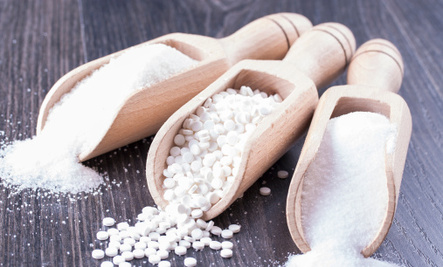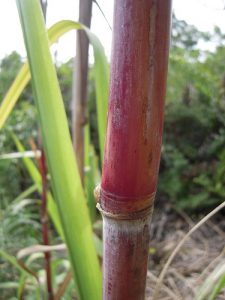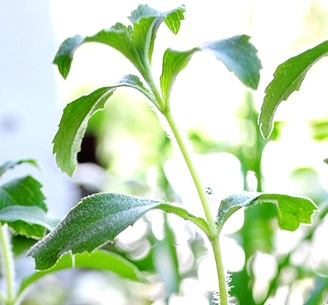Did you know that there are 19 different sugars? Some are a little healthy and most are not a good idea to eat.
Do You Which of the 19 Different Sugars are REAL FOODS?
I was a sugar addict. As a child, I was addicted to white sugar and this caused many health problems. This is one reason I am always talking about real foods: foods that are whole, live, and are balancing to the body. I try to find sugars in this category.

Not all sugars are equal. Some are very good for you in small quantities. Many are less healthy. Which ones on the following list would you consider real foods? Which do you use and why?
19 Different Sugars and Sweeteners
1. White sugar (aka sucrose)
White sugar is a pure chemical extract of sugar cane or sugar beet with no vitamins or minerals; these are stripped during the extraction process. Refined white sugar is a simple carbohydrate with lots of calories, no dietary fiber, and is an isolate. Isolates never occur in whole foods. Vegetarians may note that it may be processed with bone char. Causes a “sugar high.”
Sugar Suppresses the Immune System
Sugar interferes with the body by overtaxing its defenses. Research at Loma Linda University, California studied the effects of overeating sugar on white blood cell activity. Those who ate a whole candy bar and a soft drink could only capture 1/10 the bacteria as those who only ate ½ a chocolate bar.
Also, there seems to be a connection between anxiety and sugar but these few studies were both done on rats. The bad news is that 75% of Americans are eating too much sugar.
2. Brown sugar
Brown sugar is white sugar coated in molasses which will add a few trace minerals but is no healthier than white sugar and creates the same “sugar high.”
3. Fructose
Fructose is not from fruit; it is a commercial, refined sugar and it is no more nutritious than sucrose. It raises cholesterol, makes blood cells more prone to clotting, and it may also accelerate the aging process.
4. Sugar alcohols
Sugar alcohols (Erythritol, Isomalt, Lactitol, Maltitol, Mannitol, Sorbitol, Xylitol, Hydrogenated starch hydrolysates) are neither sugars nor alcohols. They do have calories; Xylitol has more than half the calories of white sugar. The only problems I could find with them are that when they are eaten in excessive amounts they can cause gastrointestinal side effects (bloating and diarrhea), weight gain, and increased blood sugars. Still, they are not whole foods so caution must be used; the recommendation is to not use them regularly.
5. Fruit juice concentrate
This is refined and has been stripped of flavor and nutritional value. It is rapidly assimilated in the bloodstream so not highly recommended.
6. Demerara sugar (natural brown sugar)
Also known as turbinado sugar, demerara sugar is made by extracting the juice from sugar cane and then heating it until it is turned into crystals. It does not preserve much of its original molasses content but does have lots of potassium and some minerals and vitamins.
7. Evaporated sugar cane juice
Evaporated sugar cane juice goes through less processing than refined sugar and has more nutrients found in sugar cane. It contains tiny amounts of vitamins and minerals.
8. Sugar cane juice
Sugar cane juice is made from the same sugar cane stalks that are grown to make white sugar. Hand-powered presses or machine presses crush the sugarcane stalks and release the raw sugarcane juice. It is healthier than table sugar as it contains tiny amounts of vitamins and minerals and is raw if not processed at high temperatures.
9. Sucanat
Sucanat is made from sugar cane, usually organically grown, and minimally processed to obtain juice to make syrup (the molasses is not removed). The syrup is dehydrated and milled into a powder. It has potassium, vitamin A, calcium, iron, magnesium, and small amounts of other vitamins and minerals.
10. Coconut sugar
Coconut sugar is made from the sap of coconut flowers by boiling it down to dry sugar blocks or a soft paste or a granulated form. Coconut sugar contains a higher amount of nutrients compared to brown sugar as it has some amounts of nitrogen, phosphorus, potassium, chlorine, magnesium, sulfur, and micronutrients.
11. Palm sugar
Palm sugar is extracted from the sap of date palm trees and palmyra palms, which are said to be the best. It can also be extracted from sago and coconut palms. It is commonly used in Southeast Asia, where it is called jaggery or gur. It is high in amino acids, potassium, magnesium, zinc, and iron and has some vitamins B1, B2, B3, and B6. It also has an absorption rate slower than that of white sugar.
12. Agave nectar
Agave nectar is the juice extracted from agave (the same plant tequila is made from). It is not raw; it is produced much like maple syrup is; boiled at a high temperature till it is a syrup like the one you buy. It is 42 percent sweeter than white sugar but has the same caloric value and a low glycemic index — a measurement of the relative ability of a carbohydrate to raise blood glucose levels. Most agave syrup has a high fructose content ranging from 70 to 97 percent, depending on the brand. This is higher than most commercial sweeteners; even much higher than high fructose corn syrup which averages 55 percent. A recent report from The Weston A. Price Foundation says that it’s as bad for our bodies as high fructose corn syrup (HFCS). There is much controversy about this sweetener and here is one place to read about it: Agave nectar
13. Date sugar
Date sugar is not sugar as it is made from ground, dehydrated dates containing all the vitamins, minerals, and fiber found in the fruit. Date sugar is rich in nutrients and is metabolized more slowly than sugar.
14. Maple syrup
Maple syrup is made from the sap of sugar maple trees. Less refined than white sugar, but at roughly 65 percent sucrose, is a sugar equivalent. It has a tiny amount of minerals and a very tiny amount of vitamins.
15. Barley malt syrup
Barley malt syrup is made from barley that is sprouted using only the grain’s own enzymes, kiln roasted, and slowly cooked until a thick, dark brown syrup is formed. The sugars in barley malt syrup are complex, thus they are slowly broken down in the body. It has trace amounts of vitamins, minerals, and protein. Barley malt syrup, like rice syrup, will not create a sugar high like the simple sugars do as it is released slowly.
16. Brown rice syrup
Brown rice syrup is made from cooked brown rice, which is fermented by adding enzymes to turn the starches in the rice into sugars. It is a complex sugar and thus takes longer to digest.
“While half as sweet as sugar, brown rice syrup has a high glycemic index of 98 (compared to sugar’s 65) which means that it increases the blood glucose level more significantly after consumption.” ~ Sweetener Products
Another problem with brown rice is that it has a lot of arsenic in it.
Lundberg Syrup Brown Rice Syrup Lightly sweet, amber-colored and smooth, Gluten-free
17. Molasses
Molasses is a by-product of sugar cane or beet sugar refining. High in B vitamins, vitamin E, iron, calcium, magnesium, potassium, chromium, manganese, and zinc. The blackstrap variety is less refined and higher in nutrients. Buy unsulphured molasses, as sulfur can be toxic in high doses.
18. Honey
Honey is similar to table sugar. Pure raw honey (not heated above 100 degrees) contains small amounts of vitamins, minerals, enzymes, flavonoids, and antioxidants. Some research suggests that honey helps in the treatment of gastrointestinal disorders. Honey is as rapidly assimilated in the bloodstream as refined sugar, so is not highly recommended.
19. Stevia
Stevia is a natural sugar alternative that helps to regulate blood sugar and lower blood pressure. Stevia is a complex sugar extract from the plant Stevia Rebaudiana, grown originally in South America. It is an herb native to the Paraguayan Indians who used it before the colonization by the Spaniards in the 16th century. The Brazilian Journal of Medicine showed that Stevia Rebaudiana actually “increased glucose tolerance.”
Because stevia is very sweet, you only need to use a small amount and the best thing is that it virtually has no calories. Just think about it……a plant sweetening your food with virtually no calories…….how good is that?!!
Note:
- The problem with consuming any simple carbohydrate is that it creates an insulin response that can overwork the pancreas. Over time, the body’s ability to handle all sugars, simple and complex, begins to weaken.
- Since all sugars will cause an elevation in blood sugar, diabetics and people with dietary issues should consult their doctor about alternatives to sugar that will be healthy for them.
- Most sugars are strongly acid-forming in the body. They all also have calories.
My Choice:
I never use the first four (white sugar, brown sugar, fructose, sugar alcohol) in my cooking.
I mostly use stevia and barley malt, honey, and a little molasse.
I use a few of the others carefully. For most of us, a little of the healthier sugars is fine and can even be good for us.
In my kitchen sugars are used sparingly.
I bought a liter of maple syrup seven years ago and still have half a cup left and the only reason there is so little left is because I spilled a cup of it two years ago….in the fridge — what a mess!
I bought a package of sucanat three years ago and still have a quarter of a cup left. At Christmas,
I make my Fancy Fruit & Macadamia Nut Cookies (dairy- & wheat-free) and use four tablespoons of sucanat for a big recipe.
When making desserts, I mostly use stevia for things like rice pudding.
As stevia is almost always in my recipes, I use less of the other “sugars.” To get the right texture and flavor a little of one of the healthier sugars is helpful and they add some nutrition……and of course fun.
Recipes:
Sugar-Free Apple Sauce Contains absolutely NO added sugars
Berry Crumble Sweetened with minimal healthy sugars and stevia.





i LOVE this article. thank you, diana and randy, for all your wonderful and informative articles.
will look for them on care2, also.
You are welcome Annie, and so good to hear that you are enjoying them.